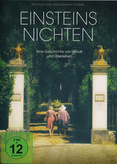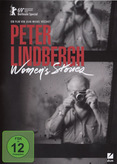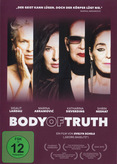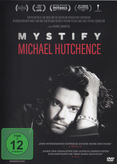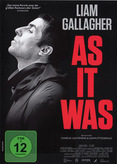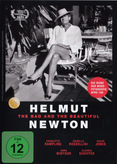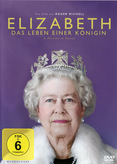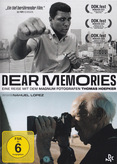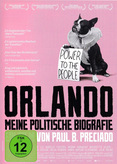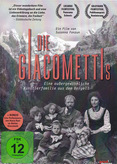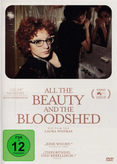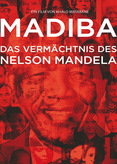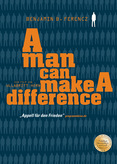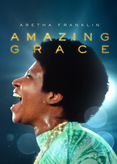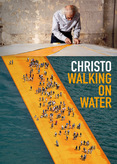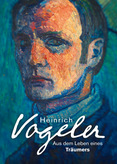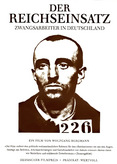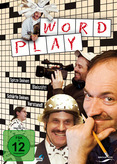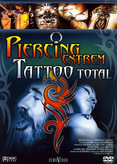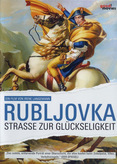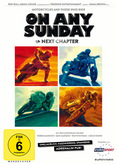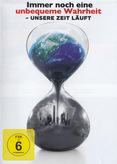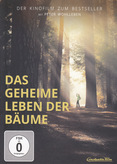Raoul Peck, Oscar-nominierter Regisseur für 'I Am Not Your Negro' (2016), kehrt mit einem preisgekrönten Dokumentarfilm auf die deutschen Kinoleinwände und Heimkinos zurück: In 'Ernest Cole - Lost and Found' (2024) erzählt er die bewegende Geschichte des südafrikanischen Fotografen Cole, dessen künstlerischer Nachlass, bestehend aus 60.000 Fotonegativen, 2017 in einem schwedischen Banksafe entdeckt wurde. Cole hatte 1967 mit seinem Fotobuch 'House of Bondage' der Weltöffentlichkeit die rassistische Realität in seinem Heimatland vor Augen geführt, geriet in den 80er Jahren allerdings in Vergessenheit und starb 1990 im Alter von nur 49 Jahren in New York. Mit Coles geborgenen Bildern und Texten rekonstruiert Peck in seinem Dokumentarfilm den Lebensweg eines engagierten und bahnbrechenden Künstlers, dessen Werk von der Wut über das Schweigen im Angesicht der Schrecken des Apartheid-Regimes beseelt ist. 'Lost and Found' wurde in Cannes mit dem Preis für den besten Dokumentarfilm ausgezeichnet. Ein Meisterwerk des politisch bewussten Kinos...
Raoul Peck über seinen Film: Welche Bedeutung hatte Ernest Coles Werk für Sie, bevor Sie den Film gemacht haben? "Als Erstes sollte ich sagen, dass ich zwar etwas jünger bin als Ernest Cole, aber immer noch zur gleichen Generation gehöre. Ich erinnere mich also an viele seiner Bilder. Zum Beispiel an das Bild der älteren Frau, die auf der Bank sitzt, auf der 'Europeans Only' steht. Ich wusste aber nicht, dass es von Ernest Cole war. In den 70er Jahren gab es nicht viele anerkannte schwarze Fotografen. Das war eine Seltenheit. Deshalb sind seine Fotos auch so einzigartig. Ich bin mit dem Kampf gegen Apartheid aufgewachsen. Als ich 17 war, war ich in Berlin und viele Menschen, die sich an diesem Kampf beteiligten, waren im Exil. Der ANC (African National Congress) war im Exil. Verschiedene Befreiungsbewegungen waren im Exil und wir demonstrierten gemeinsam. Ich habe damals mitgeholfen, ein Pamphlet zu schreiben und fotografierte. Die Geschichte von Ernest Cole ist mir also nicht fremd. Im Gegenteil, ich kann mich mit ihr in gewisser Weise identifizieren." Der Film ist so kraftvoll, auch wegen Ihrer kreativen Entscheidung, Ernest seine eigene Geschichte über den Text erzählen zu lassen. Sie bringen den Zuschauern seine Gedankenwelt mit Hilfe seiner Fotos und seiner Worte nahe, die Sie mit eigenen Texten verflechten. Peck: "Ich wollte diese Geschichte nicht durch 'Talking Heads' erzählen, das wäre zu biographisch gewesen. Und ich erzähle keine Biografien, sondern Geschichten. Ich möchte, dass man sich den Film mehrmals anschauen kann, sich auf die Geschichte einlässt und in sie hineingezogen wird. Für so etwas braucht man Charaktere, man braucht Motive, Konflikte, Charakterentwicklung, Erlösung, all das. Da ich auch Drehbuchautor bin, weiß ich, wie man das in der narrativen wie dokumentarischen Form umsetzt. Das wichtigste war, dass Ernest die Geschichte selbst erzählen würde. Es war mir wichtig zu verstehen, warum er, ein bekannter schwarzer Fotograf aus Südafrika, gewissermaßen verschwand. Wenn ich etwas darüber las, dass Ernest depressiv sei, obdachlos wäre oder an Paranoia litt, wurde ich jedes Mal wütend. Diejenigen, die sowas schrieben, sahen ihn nicht als Menschen und hatten keinen Respekt für ihn als Künstler, der etwas durchmachte. Als ich diese Texte las, dachte ich mir nur: Ich weiß, dass man nicht obdachlos wird, weil man faul oder verrückt ist. Mir war es deswegen wichtig, wirklich zu verstehen, wie er an diesen Punkt gelangt ist, und diese Blackbox von einer menschlichen Seite zu beleuchten. In Ernest Coles Haut zu schlüpfen, war nicht allzu schwer, denn ich kenne dieses Gefühl, nicht zu Hause zu sein, nicht dazuzugehören. Es begleitet mich schon mein ganzes Leben. Auch seine Depression kannte ich. Ich wusste, wie es sich anfühlt, keinen Schlafplatz zu haben. Als ich in Berlin war, musste ich mir vom einen auf den anderen Tag ein neues Zimmer suchen. Vorort hatte ich keine Familie. Natürlich hatte ich Freund:innen, auf deren Sofas ich schlafen konnte. Aber das ist nicht dasselbe, als die Menschen um sich zu haben, mit denen man aufgewachsen ist. Ich weiß also, was diese Unsicherheit bedeutet. Ein weiterer wichtiger Aspekt war, dass ich Ernest auf die Meinungen der meist weißen Expert:innen über seine Arbeit reagieren lassen wollte. Weil ich meine Filme auf intensiver Recherche aufbaue, stoße ich immer auf dieses Problem: Ich treffe all die Experten, lese all ihre Werke, ihre Thesen und stelle fest, dass diese Expert:innen zum Großteil weiß sind. Weiße Journalisten, weiße Historiker... Man kommt nicht umhin eine Art Bevormundung festzustellen. Das alles hat etwas Belehrendes. Und das nutze ich in diesem Film."
Weiterlesen »
Raoul Peck, Oscar-nominated director for 'I Am Not Your Negro' (2016), returns to German cinema screens and home cinemas with an award-winning documentary: In 'Ernest Cole - Lost and Found' (2024), he tells the moving story of South African photographer Cole, whose artistic estate, consisting of 60,000 photo negatives, was discovered in a Swedish bank safe in 2017. Cole had made the racist reality in his home country clear to the world public in 1967 with his photo book 'House of Bondage', but fell into oblivion in the 80s and died in New York in 1990 at the age of only 49. Using Cole's salvaged images and texts, Peck reconstructs the life of a committed and groundbreaking artist whose work is animated by anger over silence in the face of the horrors of the apartheid regime. 'Lost and Found' was awarded the prize for best documentary film in Cannes. A masterpiece of politically conscious cinema...
Raoul Peck about his film: What significance did Ernest Cole's work have for you before you made the film? "The first thing I should say is that although I'm a little younger than Ernest Cole, I'm still part of the same generation. So I remember a lot of his paintings. For example, the picture of the elderly woman sitting on the bench that says 'Europeans Only'. But I didn't know it was from Ernest Cole. In the 70s, there weren't many recognized black photographers. That was a rarity. That's why his photos are so unique. I grew up fighting apartheid. When I was 17, I was in Berlin and many people who took part in this struggle were in exile. The ANC (African National Congress) was in exile. Various liberation movements were in exile and we demonstrated together. At that time, I helped write a pamphlet and took photographs. So the story of Ernest Cole is not foreign to me. On the contrary, I can identify with it in a way." The film is so powerful, partly because of your creative decision to let Ernest tell his own story through the text. You bring his world of thoughts closer to the audience with the help of his photos and his words, which you interweave with your own texts. Peck: "I didn't want to tell this story through 'Talking Heads', that would have been too biographical. And I don't tell biographies, but stories. I want people to be able to watch the film several times, to get involved in the story and to be drawn into it. For something like that, you need characters, you need motives, conflicts, character development, redemption, all that. Since I'm also a screenwriter, I know how to implement this in narrative and documentary form. The most important thing was that Ernest would tell the story himself. It was important to me to understand why he, a well-known black photographer from South Africa, kind of disappeared. When I read something about Ernest being depressed, homeless, or suffering from paranoia, I always got angry. Those who wrote something like that didn't see him as a person and had no respect for him as an artist who was going through something. When I read these texts, I just thought to myself: I know that you don't become homeless because you're lazy or crazy. So it was important to me to really understand how he got to this point and to shed light on this black box from a human side. Getting into Ernest Cole's shoes wasn't too difficult, because I know this feeling of not being at home, of not belonging. It has been with me all my life. I also knew his depression. I knew what it felt like not to have a place to sleep. When I was in Berlin, I had to look for a new room from one day to the next. I had no family on site. Of course, I had friends whose sofas I could sleep on. But that's not the same as having the people around you that you grew up with. So I know what this uncertainty means. Another important aspect was that I wanted Ernest to respond to the opinions of the mostly white experts about his work. Because I base my films on intensive research, I always run into this problem: I meet all the experts, read all their works, their theses and find that these experts are mostly white. White journalists, white historians... One cannot help but notice a kind of paternalism. There is something instructive about all this. And I use that in this film."
More »




